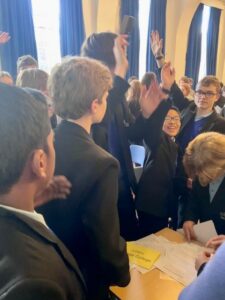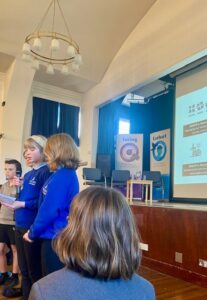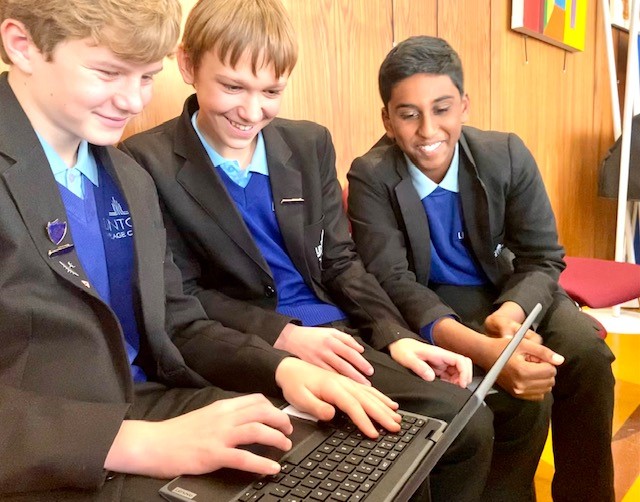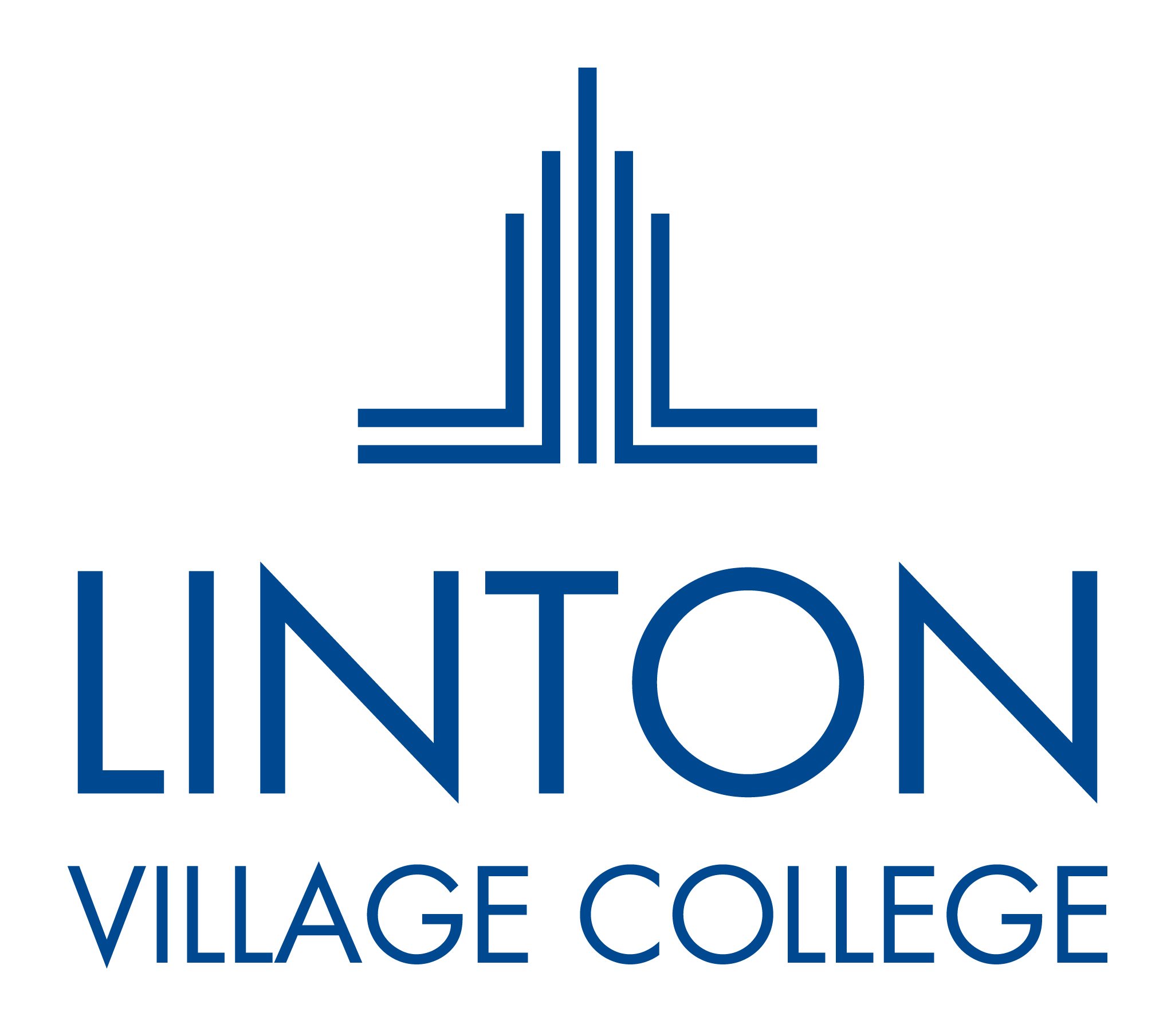COP 27 Conference
22 Students from years 7 to 10 had the opportunity to take part in the COP 27 Youth Conference at Sawston Village College on Wednesday 16th November. This took place alongside the actual COP 27 in Sharm El Sheikh, Egypt. 14 schools participated in the event. Guest speakers included Cambridgeshire County Council’s key climate change projects and commitments – Councillor Bryony Goodliffe, Service Director for Education at Cambridgeshire County Council – Jonathan Lewis and the keynote speaker – Dr Simon Morley, Marine Biologist from the British Antarctic Survey.
Dr. Simon Morley has spent over 30 years researching how the resilience of marine animals varies between environments. He uses these findings to predict the vulnerability of life in ocean to climate change. This is turned into advice to help governments manage their marine environments.
He highlighted how his research in the Antarctic informs the IPCC and COP processes, helping policy makers reinforce what is required to protect the Antarctic. He introduced the vulnerability of Antarctic marine ecosystems, the complexity of anthropogenic drivers and the thresholds that the BAS research predicts. Students were made aware that in he had first learned to ski 20 years ago on a glacier in Antarctica. Students were shocked to discover that due to glacial retreat and climate change, the glacier has since disappeared.
Throughout the day students took part in three workshops.
Workshop 1: Each school represented a country participating in COP 27 Linton Village College were Australia. Students had to decide how Australia is impacted by climate change and all countries (schools) were allowed to bid for the climate fund of up to £100 billion. Students had to create an opening speech explaining how they would spend the money. Our main speaker clearly discussed how Australia would spend their climate fund of £12 billion. Some of the ideas were aiming to mitigate forest fires, discover strategies to prevent further coral bleaching and set up climate change refugee shelter for low lying Pacific nations. To conclude the workshop students took part in an unanimous vote to say what policy best suited Australia’s principles but also what was most socially, economically and environmentally viable as well as most useful.
Workshop 2: students split into three different groups to listen to different presentations. Group 1 listened to a presentation from Natural England by Victoria Gillard. Students got into groups and discussed how they could create green spaces and make shelters for nature in and around their school Group 2 planted trees, discussed protecting the new plants and created plaques to represent each schools participation in this event. Group 3 listened to Hannah Thomas a conservationist. She dedicated the last year to building a project in Babraham near the research campus. This entailed her getting sponsors for the cost of a forest garden. Over the next two years, the area will be cornered off to allow the trees to grow, strengthen and develop.
Workshop 3: In groups, we put forward ideas on what we could pledge to do as a group of schools. At the end of the workshop and debate discussing the chosen ideas, a consensus was agreed on a commitment we could all make. The final decision was to have an Eco Club in each school and to have competitions and events across the schools.



01223 891233
Linton Village College, Cambridge Rd, Linton, Cambridge, Cambridgeshire, CB21 4JB

